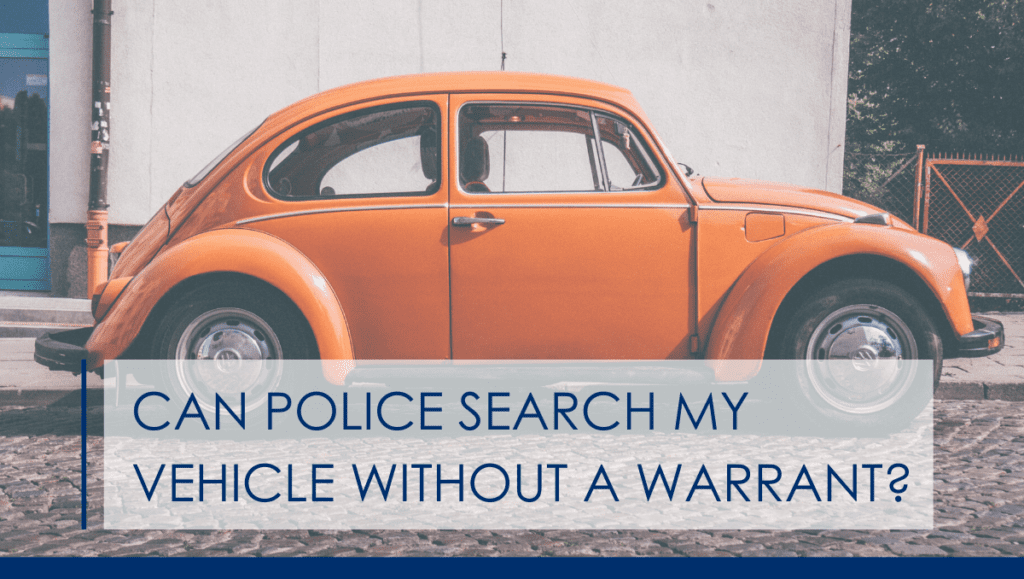
By Jessica Incledon, Criminal Lawyer at Gnech and Associates
13 May 2022
Have you ever been part of a routine traffic stop or roadside breath test and wondered what the limits of the police officers’ powers are? Police powers are governed by the Police Powers and Responsibilities Act 2000. This Act (and the accompanying case law) sets out what police can do in what circumstances.
This article is specifically about police powers to search your vehicle.
When can a police search your vehicle without a warrant?
Police can only search your vehicle without a search warrant in limited circumstances. The circumstances in which it is lawful for a police officer to search your vehicle without a search warrant are set out in section 32 of the Police Powers and Responsibilities Act 2000, and include where a police officer reasonably suspects you have in the vehicle:
- A weapon
- A dangerous drug
- Stolen property
- Tools to break into houses or cars
- Something you plan to use to hurt yourself or someone else
- Evidence someone has committed a serious crime
Police do not have an automatic right to search a persons vehicle and it can only be conducted in accordance with the law.

Does an unlawful search = inadmissible evidence?
If the search of a vehicle is unlawful, the evidence found during the search is not automatically inadmissible at trial. The court is required to consider whether to exercise its discretion to exclude the evidence by balancing a number of factors.
R v Aloia
In the recent case of R v Aloia [2022] QSCPR 1, the Cairns Supreme Court ruled that evidence obtained from a search of the applicant’s vehicle be excluded from his criminal trial. In this case, the applicant was driving his car through Innisfail when he was intercepted by police investigating allegations of major vehicle defects.
Police subsequently administered roadside drug and alcohol tests, and while awaiting the drug test results, police searched the applicant’s vehicle.
The basis of the search was said by police to be a reasonable suspicion that the applicant had dangerous drugs in the vehicle.
Police said they had this suspicion due to police intelligence regarding the applicant being a drug user and his behaviour. Police subsequently located drugs during the search.
The applicant’s legal representatives argued that the search of the applicant’s vehicle was illegal because there were inadequate grounds for police to reasonably suspect there were unlawful drugs in the vehicle.
The decision of the Judge
The Judge agreed, stating in his decision:
“The bare fact the applicant had used illicit drugs in the past and was once caught in possession of illicit drugs did not provide reasonable grounds to suspect that he was in possession of something which may be an illicit drug then and there, at the scene of the vehicle intercept on the night in question.”
The issue is then whether the evidence obtained from the unlawful search should be excluded on public policy grounds. Balancing the seriousness of the offence against the undesirable effect of approving unlawful conduct of the police, the Judge concluded that the evidence should be excluded. In his decision, the Judge stated:
“The applicant’s possession of an aggravated weight of unlawful drug was of course a serious offence, although there is nothing before the court, to suggest that it is an unusually grave instance of that class of offence. Further I am prepared to accept the unlawfulness was not deliberate and was likely an ill-considered reaction to seeing the police data base entry, “Drug user – search at every opportunity”. Yet that feature of the case is also very concerning. Police in the field need to know an instruction of that kind in a police data base does not negate their obligation to obey the law. It is critical to laws designed to protect citizens serving their purpose that police apply their independent minds in making an assessment which must be made by them, not by an entry in a data base. In this case such an entry seems to have been so determinative that having seen it the officer did not even bother to wait for the outcome of the drug test he had administered.“

Accordingly, the evidence obtained from the search of the applicant’s vehicle was excluded from his trial.
This is a complex area of law requiring specialist advice. If you require legal advice in this regard, contact Gnech and Associate Lawyers on 3558 1040.


